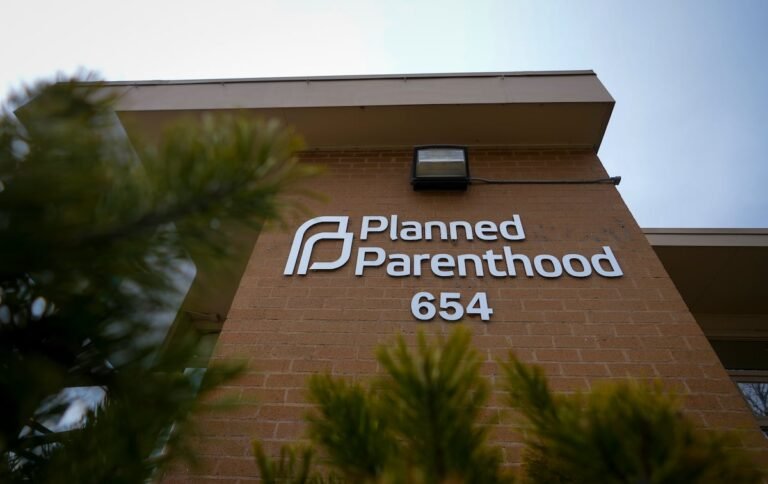The lawsuit, filed this month, came in response to a provision introduced in the sprawling policy bill that President Donald Trump signed into law early in July.
(Bethany Baker | The Salt Lake Tribune) Planned Parenthood in Salt Lake City on Monday, Feb. 5, 2024.
A federal judge Monday indefinitely blocked the Trump administration from enforcing a policy that would prevent many Planned Parenthood clinics from receiving federal Medicaid reimbursements if they continue to offer abortion services.
The order, issued by Judge Indira Talwani in U.S. District Court in Massachusetts, extended a temporary block she had placed on the government this month. She found that the policy retaliated against Planned Parenthood in violation of its First Amendment rights and could amount to an unconstitutional “legislative punishment.”
The lawsuit, filed this month, came in response to a provision introduced in the sprawling policy bill that President Donald Trump signed into law early in July. The bill imposed a one-year ban on state Medicaid payments to any health care nonprofit that offers abortions and received more than $800,000 in Medicaid funding in 2023.
Many clinics affiliated with Planned Parenthood, which provide a range of services unrelated to abortion, immediately faced a choice between altering their operations and retaining millions of dollars in funding, or facing a potentially catastrophic loss of revenue.
Because almost no other nonprofits or national networks meet the $800,000 threshold set in the bill, Talwani found it was “easily ascertainable” that the provision was targeted and intended to force Planned Parenthood’s hand.
Federal law already prohibits the use of federal Medicaid funds for paying for abortions, and Talwani previously found that the provision was designed to indirectly squeeze clinics into dropping such services, using Medicaid payments as leverage.
She noted the expansive role that Planned Parenthood’s umbrella organization plays in political organizing, saying that the provision could also threaten “expressive” activity including advocating before Congress, supporting candidates and communicating with voters.
In withholding funding from the independent clinics that make up the organization’s network, Talwani wrote that the provision effectively held the potential to minimize the organization’s footprint across the country. In many states, it could force clinics to vastly reduce services or close.
She added that the disruption of the many other health services provided by Planned Parenthood affiliates, including family planning and tests for sexually transmitted infections, generally justified barring the policy from taking effect.
The Trump administration last week filed an appeal of the restraining order Talwani issued this month. But pending any action from the court of appeals, the injunction she granted Monday will stay in effect for the time being.
In a broader sense, Talwani also found that the law created unreasonable pressure on individual clinics — including some that may not offer abortion services — simply because of their association with the larger Planned Parenthood network.
The provision of the bill, she wrote, “requires each member to disaffiliate with Planned Parenthood Federation and stop providing abortion to continue participating in Medicaid programs.” Imposing the choice on the federation’s members, she added, “kneecaps the entire organization.”
This article originally appeared in The New York Times.

